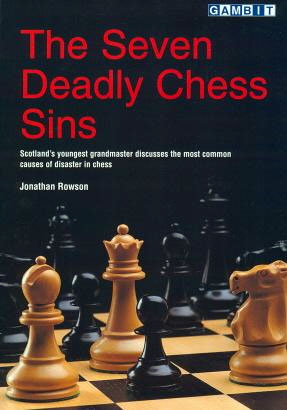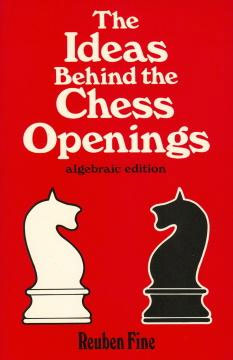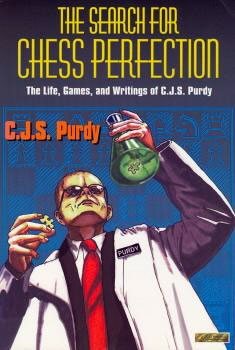


Readers were invited to help build on our list of ‘the very best chess books’, which began with these four volumes:
We are grateful for the suggestions received so far. Although it would not be practicable to repeat here all the nominations and accompanying comments, the present overview is representative, laying particular emphasis on recurring recommendations.
For example, Steve Gardner (Carnegie, Victoria, Australia) was one of a number of readers to suggest David Bronstein’s book on the 1953 Candidates’ tournament and Mikhail Tal’s account of his 1960 world championship match with Botvinnik. Two English editions of the former book were published in the late 1970s, and readers preferring the algebraic notation will go for the version from Dover Publications, Inc., translated by Jim Marfia. The Tal book, for its part, was translated by Hanon W. Russell and published by Russell Enterprises, Inc. It is now in its sixth edition.

Other ‘old classics’ referred to by readers include, not surprisingly:
Regarding Chess Fundamentals, the only option for those seeking an algebraic edition is the one produced by Cadogan Chess in 1994. In commendation of Chess Fundamentals, Owen J. Clarkin (Ottawa, Canada) has written:
‘You describe opinions of the book in your 1997 article Capablanca Goes Algebraic. I believe that Capablanca’s 1934 preface to his work is accurate. It is timeless.’
The Nimzowitsch and Tarrasch books are available in algebraic editions from Hays Publishing (produced in 1991 and 1994 respectively). In 2007 Quality Chess brought out a new English translation of My System. We have not looked closely at any of these modern editions.
The above-mentioned Alekhine books do not exist in (English) algebraic notation, except in the truncated edition Alexander Alekhine’s Best Games (B.T. Batsford Ltd., 1996), which cannot be warmly recommended. My 60 Memorable Games is currently out of print, and the 1995 Batsford edition is, of course, to be avoided.
As regards modern authors, Jonathan Rowson proved a particularly popular choice among readers. For example, Dragan Pantović (Belgrade) put forward both The Seven Deadly Chess Sins and Chess for Zebras (Gambit Publications Ltd., 2000 and 2005). Jean-Michel Laprise (Montreal, Canada) described The Seven Deadly Chess Sins as ‘by far the most stimulating chess book I have ever read’.


Another author whose name recurred was Jeremy Silman. Juan Sierra (Hickory, NC, USA) proposed his volume The Amateur’s Mind, of which a second, expanded edition was published by Siles Press in 1999.

One book recommended by Rama Gitananda (Phoenix, AZ, USA) was Silman’s Complete Endgame Course, brought out by the same publisher in 2007. Mike Zeggelaar (Edmonton, AB, Canada) included Silman’s How to Reassess Your Chess (various editions) among three recommended works of instruction, the other two being Chess for Tigers by Simon Webb (of which a third edition was issued by B.T. Batsford Ltd. in 2005) and The Art of Attack in Chess by Vladimir Vuković.

Vuković’s book was frequently mentioned by readers, mostly with a reference to the algebraic edition published by Everyman Chess in 1998. That same year B.T. Batsford Ltd. brought out an algebraic version of another highly-esteemed book mentioned by, for instance, Jim Rickman (Sudbury, MA, USA): Logical Chess: Move by Move by Irving Chernev. First published in 1957, it may be regarded as a lighter version of a book on our original list, Understanding Chess Move by Move by John Nunn.

Matt Goddard (Warwick, RI, USA) was one of several readers to propose The Ideas Behind the Chess Openings by Reuben Fine. It too is available in an algebraic edition, published by B.T. Batsford Ltd. in 1989.

Another Reuben Fine book mentioned, though less frequently, was Basic Chess Endings, of which a revised edition by Pal Benko was published by Random House, Inc. in 2003.
That book was on the extensive list submitted by Frank Dixon (Kingston, Ontario, Canada), which furthermore featured the two volumes of Fire on Board by Alexei Shirov (Cadogan Chess, 1997 and Everyman Chess, 2005). It was striking that relatively few readers proposed ‘best games’ collections by contemporary masters.

Mr Dixon mentioned too The Life and Games of Mikhail Tal by Mikhail Tal (Cadogan Chess, 1997). So did, for instance, Md. Alimuzzaman (Acton, ACT, Australia), whose long list included Practical Chess Endings by Paul Keres (of which various editions exist, in the descriptive and algebraic notations). Keres clearly remains a highly appreciated author. The same correspondent also proposed Paul Keres: The Road to the Top (B.T. Batsford Ltd., 1996), which gave Keres’ notes to many of his best games from the period 1931 to 1950. A second volume from the same publisher in 1997 covered the remainder of the master’s career, under the title Paul Keres: The Quest for Perfection, and we slip in an honourable mention for Power Chess by Paul Keres (David McKay Company, Inc., 1991).


In addition to books by Reuben Fine, Dante D. Zuniga (Tondo Manila, Philippines) suggested the bestseller Bobby Fischer Teaches Chess, an unusual work, first published in 1966, on which opinions vary considerably. Albert Silver (Rio de Janeiro, Brazil) praised Glenn Flear’s Practical Endgame Play – beyond the basics (Everyman Chess, 2007) as an ‘exhaustive, brilliant treatise’. Craig Hall (Christchurch, New Zealand) wrote that as a general introduction (we had suggested The Complete Idiot’s Guide to Chess) an alternative would be The Mammoth Book of Chess by Graham Burgess (of which a revised edition was issued by Robinson and by Carroll & Graf Publishers, Inc. in 2004). Books covering recent matches and tournaments did not feature extensively on readers’ lists, although Gene Milener (Renton, WA, USA) gave high praise to From London to Elista by Evgeny Bareev and Ilya Levitov (New in Chess, 2007). We had expected many lists to include the brilliantly written Searching for Bobby Fischer by Fred Waitzkin (Random House, Inc., 1988), but such was not the case.

Iman Khandaker (Watford, England) nominated The Search for Chess Perfection by C.J.S. Purdy (Thinkers’ Press, 1997), which is an algebraic edition, slightly augmented, of a book originally published in Australia in 1982 under the title C.J.S. Purdy His Life, His Games and His Writings edited by John Hammond and Robert Jamieson. Purdy was an exceptional writer, one of the best of all time, and it is gratifying that so much of his output has now been anthologized (by Ralph Tykodi in a series of books published by Thinkers’ Press).

The concluding comment quoted here comes from Michael Cook (Serres, Greece):
‘It is easier to suggest authors than specific titles, or to preface any suggestion with “Anything by ...”, since some authors never publish anything which is not their best and most honest work at the time it is written.’
We shall continue to digest readers’ nominations, with a view to updating the original feature article The Very Best Chess Books in due course. Other fine titles will no doubt be added, thereby helping to ensure that Mr Jones’s bookshop can offer customers the cream of chess literature.
Submit information or suggestions on chess explorations
 aficionados to discuss all matters relating to the Royal Pastime". Since then over 5,700 items have been published, and the series has resulted in four books by Winter: Chess Explorations (1996), Kings, Commoners and Knaves (1999), A Chess Omnibus (2003) and Chess Facts and Fables (2006). He is also the author of a monograph on Capablanca (1989).
aficionados to discuss all matters relating to the Royal Pastime". Since then over 5,700 items have been published, and the series has resulted in four books by Winter: Chess Explorations (1996), Kings, Commoners and Knaves (1999), A Chess Omnibus (2003) and Chess Facts and Fables (2006). He is also the author of a monograph on Capablanca (1989).
Chess Notes is well known for its historical research, and anyone browsing in its archives will find a wealth of unknown games, accounts of historical mysteries, quotes and quips, and other material of every kind imaginable. Correspondents from around the world contribute items, and they include not only "ordinary readers" but also some eminent historians – and, indeed, some eminent masters. Chess Notes is located at the Chess History Center. Signed copies of Edward Winter's publications are currently available.